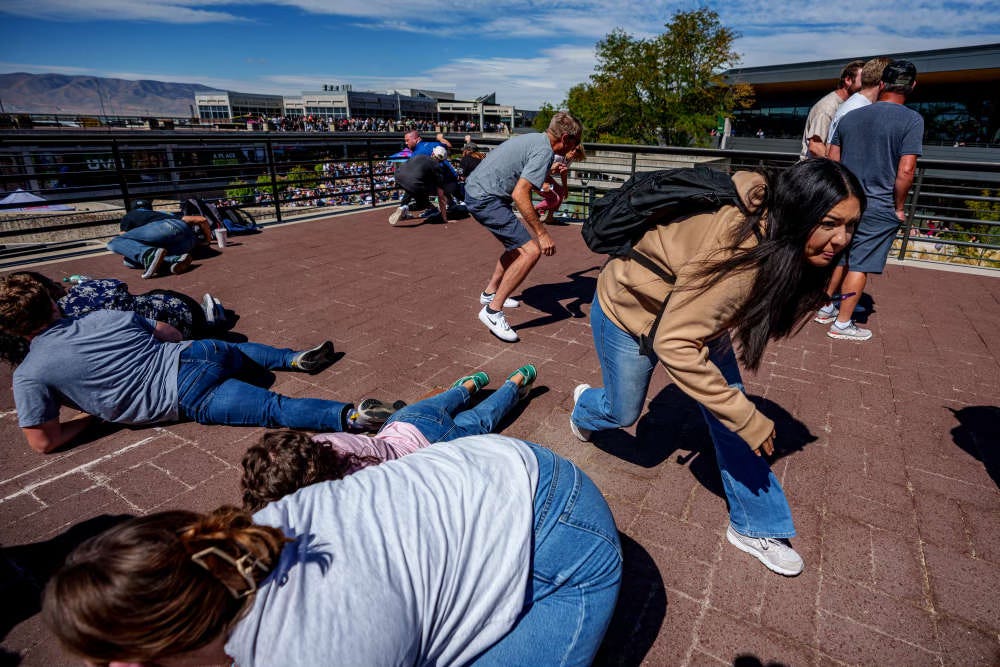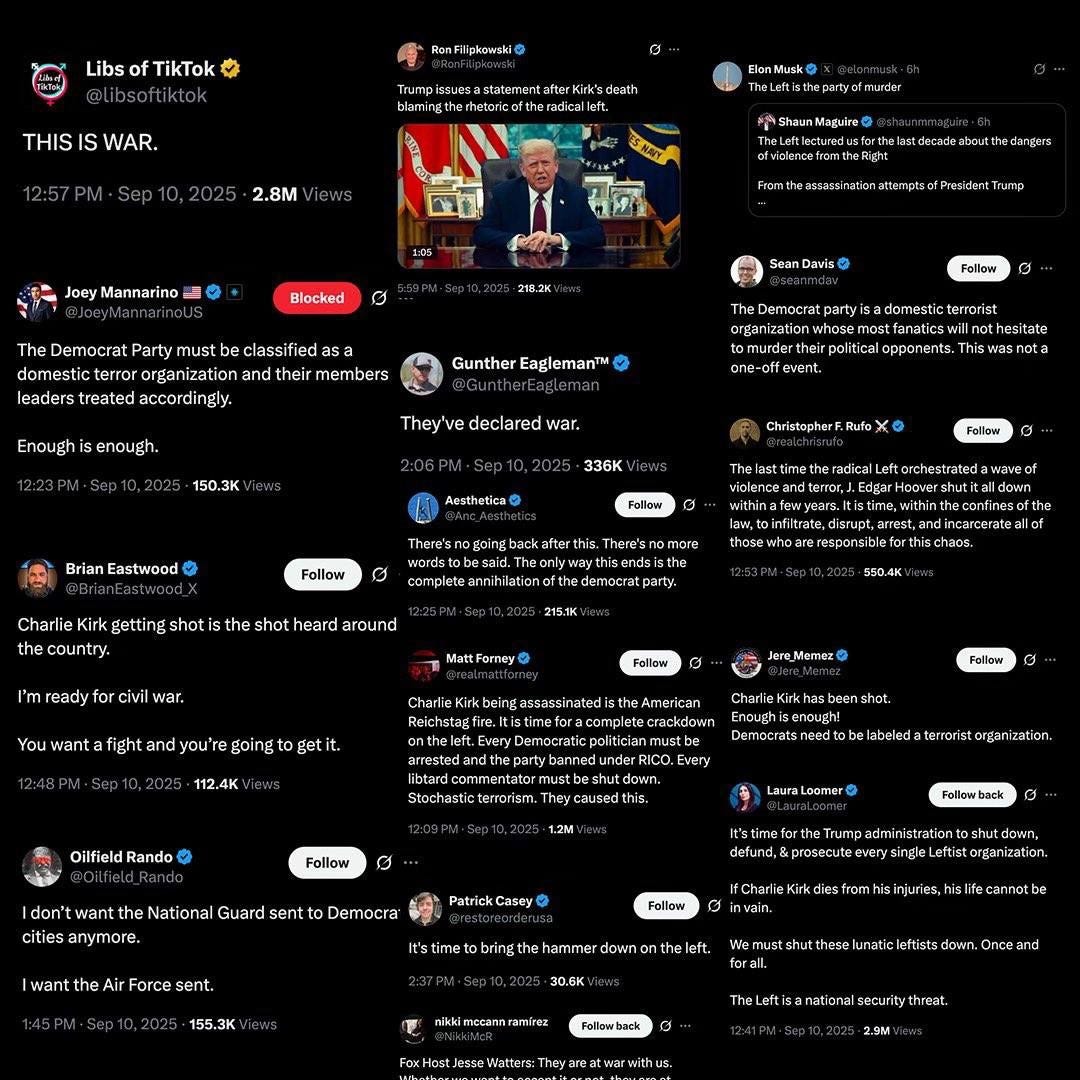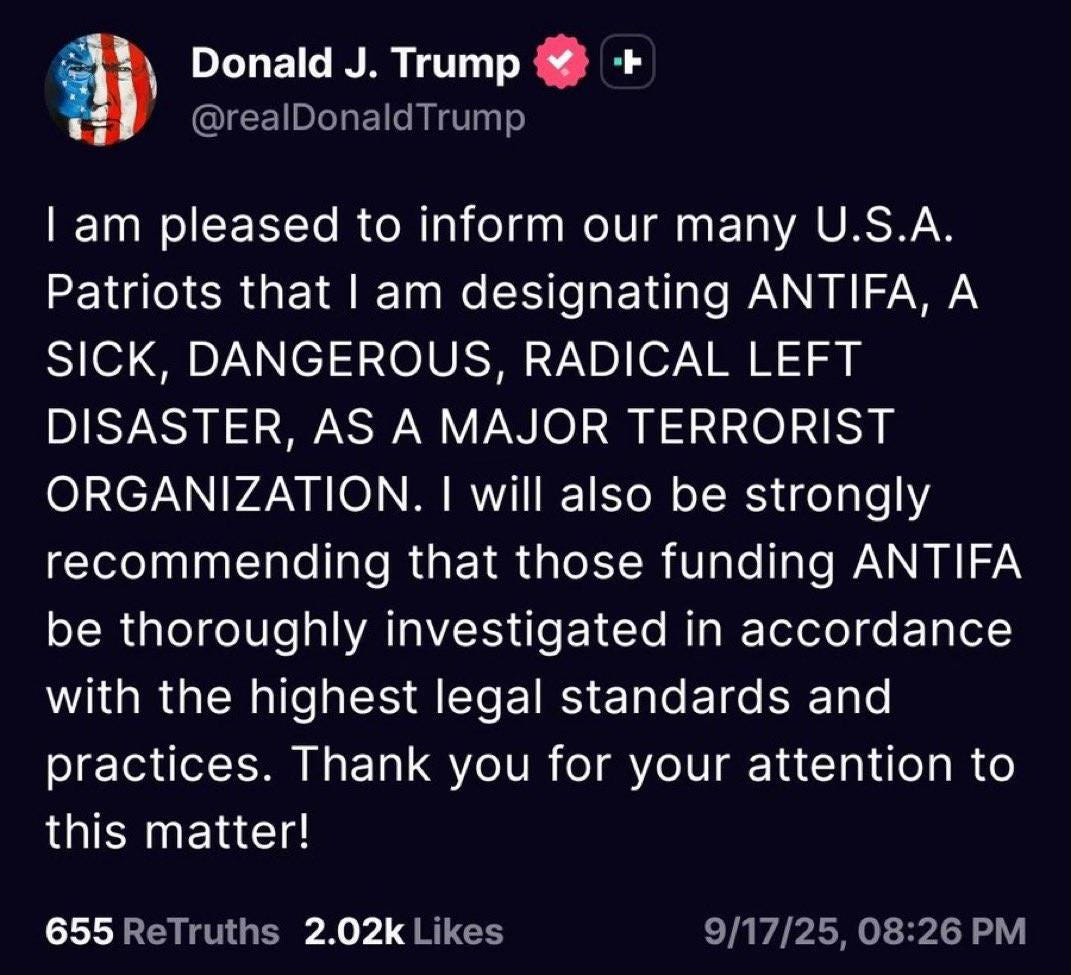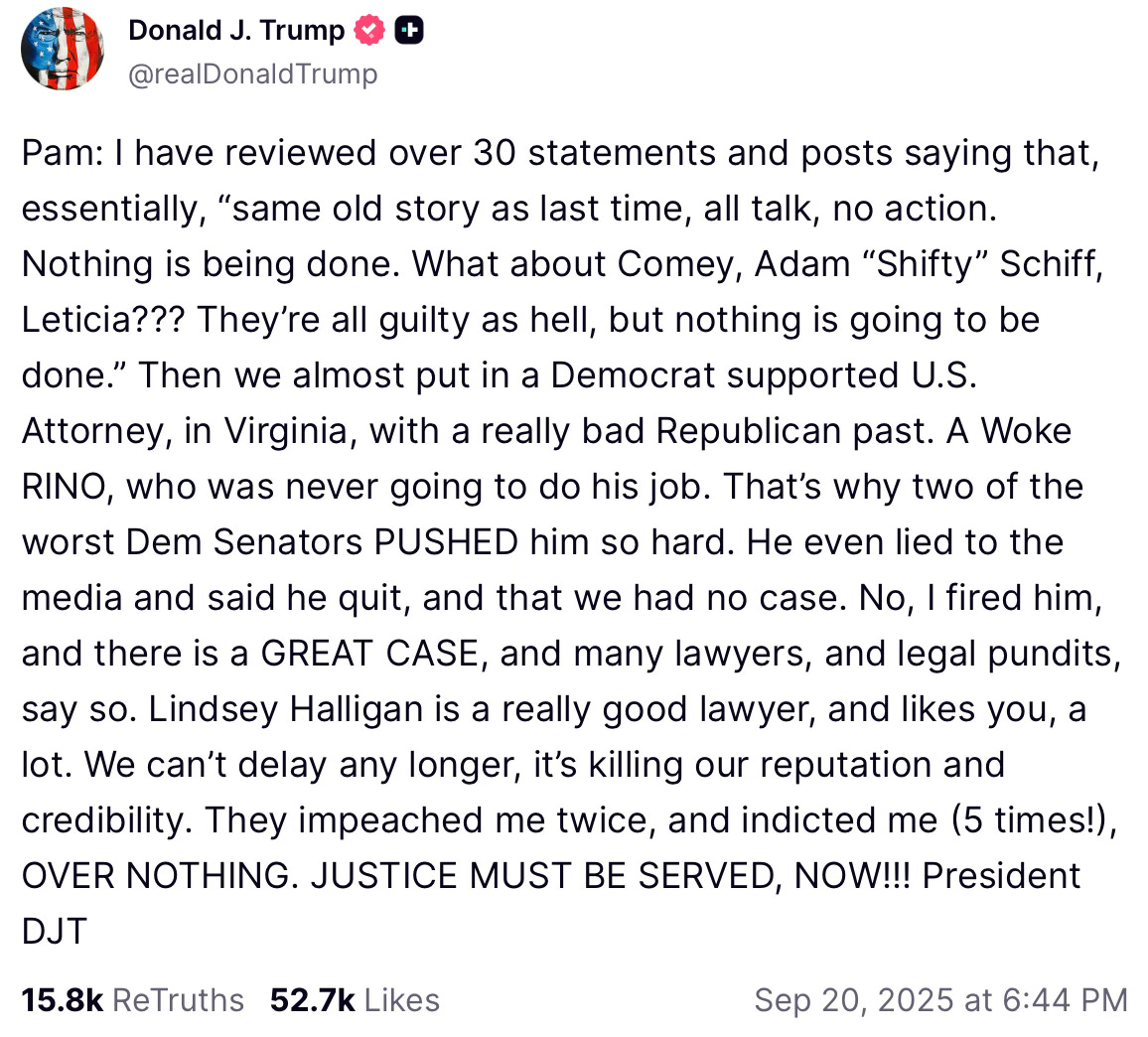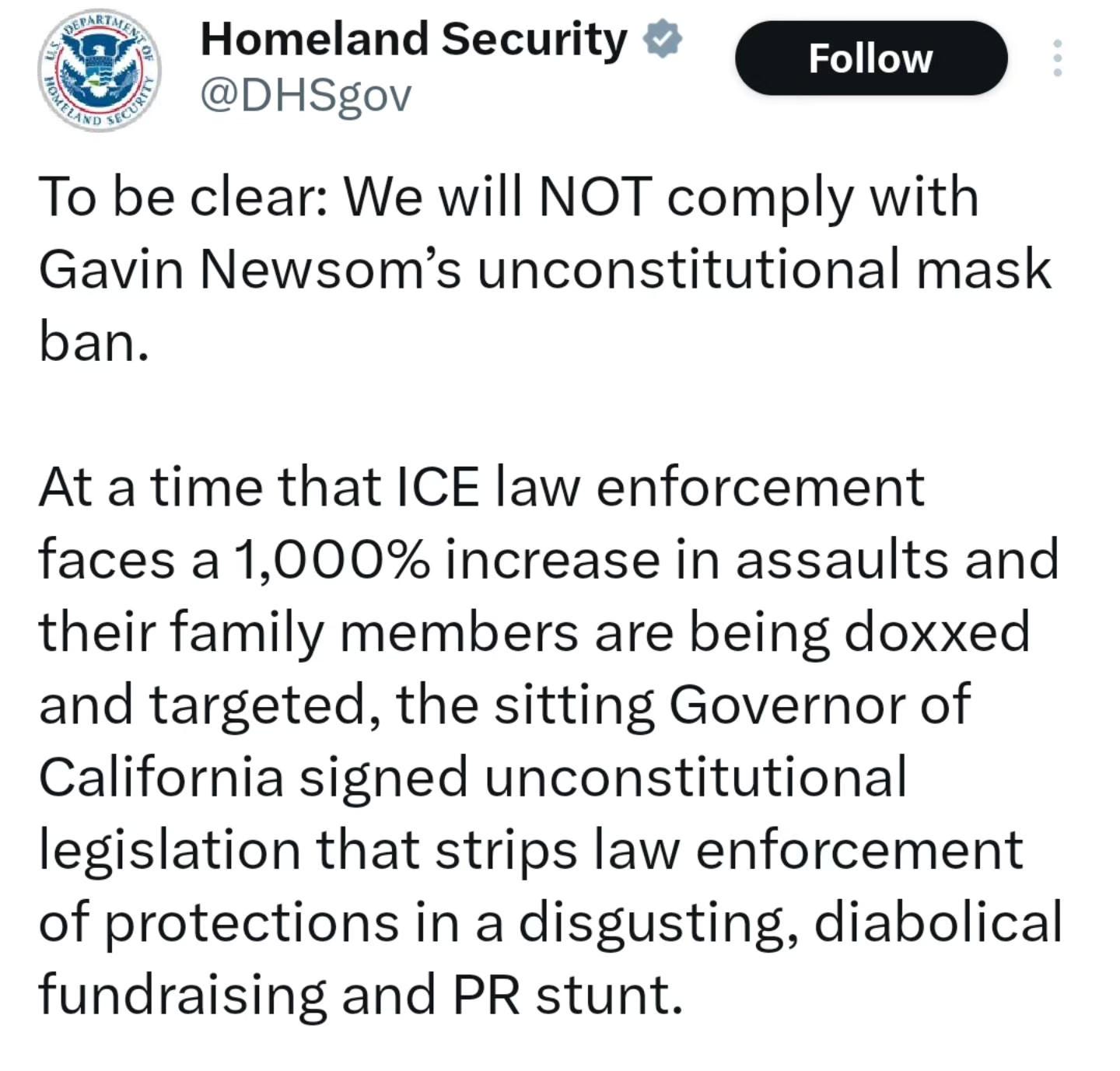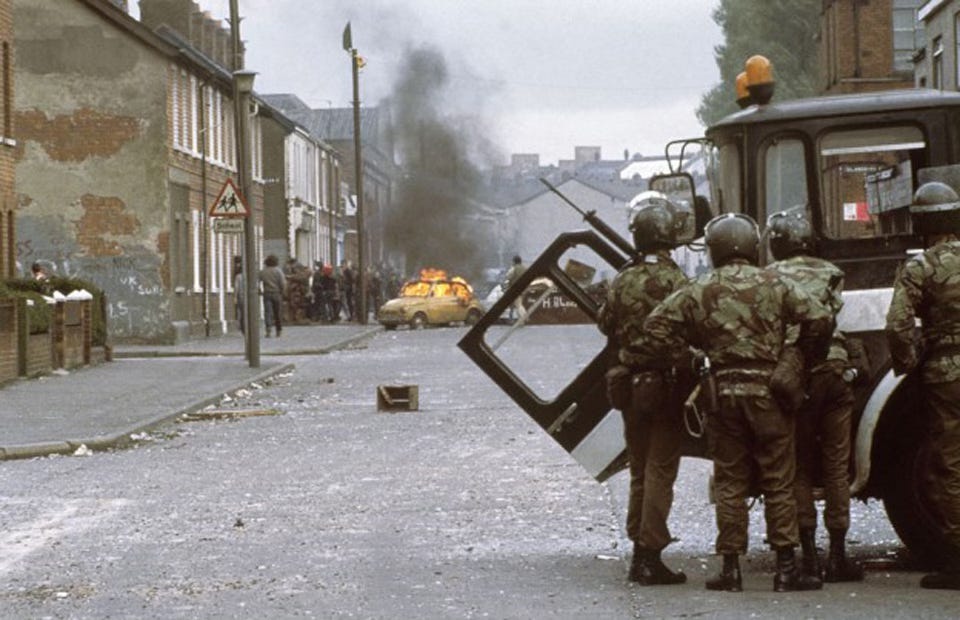The Assassination of Charlie Kirk
Where Does America Go from Here?
On September 10, 2025 conservative activist and co-founder of Turning Point USA, Charlie Kirk, was brutally shot by a sniper before a large audience on the campus of Utah Valley University. It was a political assassination that sent shockwaves across the United States and the world.
In the immediate aftermath, as state police and the FBI hunted for the gunman, accusations and recriminations between left and right flooded social and legacy media.
Talk of civil war and repression, primarily coming from an outraged rightwing mediasphere, was especially alarming. “The Democratic Party must be classified as a domestic terror organization and their members leaders treated accordingly. Enough is enough,” Joey Mannarino stated. “Charlie Kirk getting shot is the shot heard around the country. I’m ready for civil war. You want a fight and you’re going to get it,” said Brian Eastwood. “The Left is the party of murder,” Elon Musk chimed in on X. Also, Elon Musk: “Either we fight back or they will kill us.”
Over at 1600 Pennsylvania Ave in Washington, DC, President Trump and his cabinet promised a massive crackdown on the “Radical Left.” Vice President JD Vance suggested that anyone celebrating or making light of Kirk’s death should lose their job. Secretary of State Marco Rubio stated that he would deny entry to anyone who disparaged Kirk online. Secretary of Defense Pete Hegsworth promised to fire any military personnel who also disparaged Kirk. Attorney General Pam Bondi suggested that she was prepared to go after left-wing organizations and individuals who engaged in “hate speech” against Kirk.
The most infamous response, however, came from Trump’s Federal Communications Commissioner, Brendan Carr. On September 17, Carr warned ABC and its affiliates that if they did not “take action” against late-night talk show host Jimmy Kimmel, “there would be additional work for the FCC ahead.” Kimmel earlier angered Trump and many in his base by making a joke about Kirk’s assassin being part of MAGA and, additionally, Trump’s nonchalant reaction to the death of a so-called “great friend.”
ABC subsequently pulled Kimmel’s show from the air. However, after an immediate and immense public uproar, Kimmel was reinstated a week later.
And then there was the President himself. Trump wasted no time, signing an executive order to designate “Antifa” (shorthand for “anti-fascist”)—an amorphous collection of leftwing activist groups with no leadership, fundraising, or organizational structure—as a “domestic terrorist organization.” Yesterday, he also signed another executive order to “dismantle” left-wing domestic terrorist networks. The order authorizes the FBI’s Joint Terrorism Taskforce and other federal agencies like the Treasury Department and IRS “to identify and disrupt financial networks that fund domestic terrorism and political violence.”
Since then, the President has:
Ordered his attorney general, Pam Bondi—over social media, it ought to be said—to expedite the repression and prosecution of his political opponents. Yesterday, his old political nemesis, James Comey, was indicted for making a false statement to Congress way back in September 2020. Another political enemy, former Trump national security advisor John Bolton, is currently under investigation by the Department of Justice. New York Attorney General Letitia James is rumored to be next in line to face federal indictments.
Directed that the Justice Department investigate and prosecute groups linked to liberal philanthropist George Soros and his Open Society Foundation for providing “material support for [domestic] terrorism.”
A Coming Civil War?
As of this date—September 26, 2025 —America is in what could be called a political civil war. A political civil war that, if Americans are not careful, could turn into a real civil war. Unfortunately, the assassination of Charlie Kirk was an event that brought the country merely closer to the latter.
In this political civil war, the two main political parties, as well as both houses of Congress, are not only in a grinding deadlock (which has been the case for decades) but are also using all the levers of their constitutional powers and the law to go after one another, both individually and collectively. Witness Republican Congresswoman Nancy Mace trying to get Democratic Congresswoman Ilhan Omar censured and thrown off her committee assignments for Omar’s remarks about Kirk.
On Wednesday, Arizona State Representative John Gillette, a Republican, tweeted that Washington State Representative Pramila Jayapal, a Democrat, should be “hanged” for calling on Americans to protest Trump’s policies.
At least the country is not at the point yet where Congressmen and Senators are trying to cane each other to death on the House floor, like what occurred on May 22, 1856, when Congressman Preston Brooks of South Carolina almost killed Senator Charles Sumner of Massachusetts for Sumner’s recent anti-slavery speech.
Political warfare and “lawfare” (waging political war on opponents by utilizing the mechanisms of the law) occurred throughout the 1850s, the decade preceding the first American Civil War. Tragically, we are witnessing this troubling trajectory again in the United States.
Civil wars are often preceded by a breakdown in law or the misuse of law to prosecute the political opposition. Once the law breaks down, or is shown to be used illegitimately, it is not far off when order breaks down. That is the moment when political violence begins to take hold in a society. That is the spark that ignites the powder keg.
The United States is well into that territory. The Trump administration is now openly waging political warfare on its perceived domestic enemies and is misusing federal laws in its campaign of retribution and repression.
Particularly concerning is Trump’s attempt to federalize state National Guard units to police American cities, in defiance of the wishes of state governors, city mayors, and established federal laws, such as the Posse Comitatus Act. Trump would first have to invoke the Insurrection Act (and prove the existence of an insurrection) to justify violating a state’s sovereignty in this manner. In the absence of violent insurrection, there is nothing that allows a sitting president to commandeer a state’s military forces just because they feel like doing so. This is totally unconstitutional and illegal...and yet it is happening before everyone’s eyes.
In the previous civil war, it was a collection of States, the Confederacy, rebelling against the sovereignty of the Federal government, the Union. This time, it is the exact opposite: it is the Federal government, under the direction of the President, rebelling against the sovereignty of a collection of States.
The Trump administration is now openly defying State laws and sovereignty (not to mention their own Federal law)—and not only not hiding it, but openly boasting about it. Witness a tweet by the Department of Homeland Security this week: “To be clear: We will NOT comply with Gavin Newsom’s unconstitutional mask ban. At a time that ICE law enforcement faces a 1000% increase in assaults and their family members are being doxxed and targeted, the sitting governor of California signed unconstitutional legislation that strips law enforcement of protections in a disgusting, diabolical fundraising and PR stunt.”
If one were to time-travel back a few years, it would be absolutely inconceivable that a major federal agency would tweet out such a statement. And yet, now, here we are.
Political violence in a society is so dangerous because it spreads so fast if left unchecked. It is like a forest fire: starting in one area, only to suddenly jump to five other regions in the blink of an eye. And once one fire is extinguished, more continue to burn elsewhere.
This is why the assassination of Charlie Kirk, and even more recent politically-motivated violence, is so disastrous for American civil society. It pushes the country closer and closer to a tipping point where political violence will burn through the land, unchecked and unstoppable. That is the point where a political civil war becomes an actual civil war.
Under normal circumstances, a government would mobilize its immense power to calm citizens, dissipate passions, and prevent political violence from spreading. Instead, we have a government that is doing the exact opposite. We have an administration that is pouring gasoline on the fire, trying to pit the American left against the right, and using Federal laws to inflame an already volatile situation.
This is why this writer is pessimistic about pulling out of this dive before the national plane crashes into the looming mountain.
If the political civil war should turn into a real civil war, what would it look like? The answer is that it would look a lot like now—only on a much larger and deadlier scale. Assassinations would happen every week, politically-motivated shootings between citizens would skyrocket, troops would occupy American cities and even some rural areas, large protests would erupt, riots would break out, numerous political dissidents would be rounded up and put in internment camps, car bombs might explode, and running gun battles between citizens and state security forces would make the nightly news. It would not look like the Battle of Antietam in 1862; it would look more like Northern Ireland in 1972—the deadliest year of that sectarian civil war known as “The Troubles.”
Because we have a federal government that is fanning the flames of civil war, we are probably about to enter what is known in political science and military doctrine as a “low-intensity conflict.” A low-intensity conflict is essentially an insurgency-counterinsurgency war that falls below the intensity of an all-out conventional war or civil war.
The US Army defines a low-intensity conflict as “a political-military confrontation between contending states or groups below conventional war and above the routine, peaceful competition among states. It frequently involves protracted struggles of competing principles and ideologies. Low-intensity conflict ranges from subversion to the use of the armed forces. It is waged by a combination of means, employing political, economic, informational, and military instruments. Low-intensity conflicts are often localized, generally in the Third World, but contain regional and global security implications.”
If that is the Army’s definition, then welcome to the Third World, America.
An Inflection Point?
The assassination of Charlie Kirk might be a watershed moment in American history. Former President Barack Obama recently opined on this point. Speaking before an audience at the Jefferson Educational Society in Pennsylvania on September 17, Obama stated:
“Political violence is not new. It has happened at certain periods in our history. It is something that is anathema to what it means to be a democratic country...The central premise of our democratic system is that we have to be able to disagree and have sometimes really contentious debates without resort to violence...When I hear not just our current president, but his aides, who have a history of calling political opponents vermin, enemies who need to be targeted, that speaks to a broader problem that we have right now, and something that we’re going to have to grapple with—all of us—whether we’re Democrats, Republicans, Independents. We have to recognize on both sides, undoubtedly there are people who are extremists and who say things that are contrary to what I believe are America’s core values. But I will say that those extreme views were not in my White House. I wasn’t embracing them. I wasn’t empowering them. I wasn’t putting the weight of the United States government behind extremist views. When we have the weight of the United States government behind extremist views, we’ve got a problem...”
Obama ended, “We’re at an inflection point in the sense that we always have to fight for our democracy and we have to fight for those values that made this country the envy of the world. I often say democracy is not self-executing. It depends on us as citizens, regardless of our political affiliations, to stand up for certain core values because otherwise...you may not have them.”
Where does America go from here, after the horrific murder of Charlie Kirk? If we lived in different times, I would say that Kirk’s assassination, although tragic, would not stop the country from continuing in a relatively normal fashion. After all, John F. Kennedy’s assassination did not bring civil war, nor Martin Luther King’s, nor Robert F. Kennedy’s, nor John Lennon’s. Timothy McVeigh’s bombing of the Federal Building in Oklahoma City did not even bring civil war. But the United States had a government in those times that tried to bring Americans together, however haphazardly, in the aftermath of those terrible tragedies.
Not today. Not now.
Today, we have a government, a President, trying to divide Americans apart and actually foment a civil war. In Obama’s words, we’ve got a problem.

